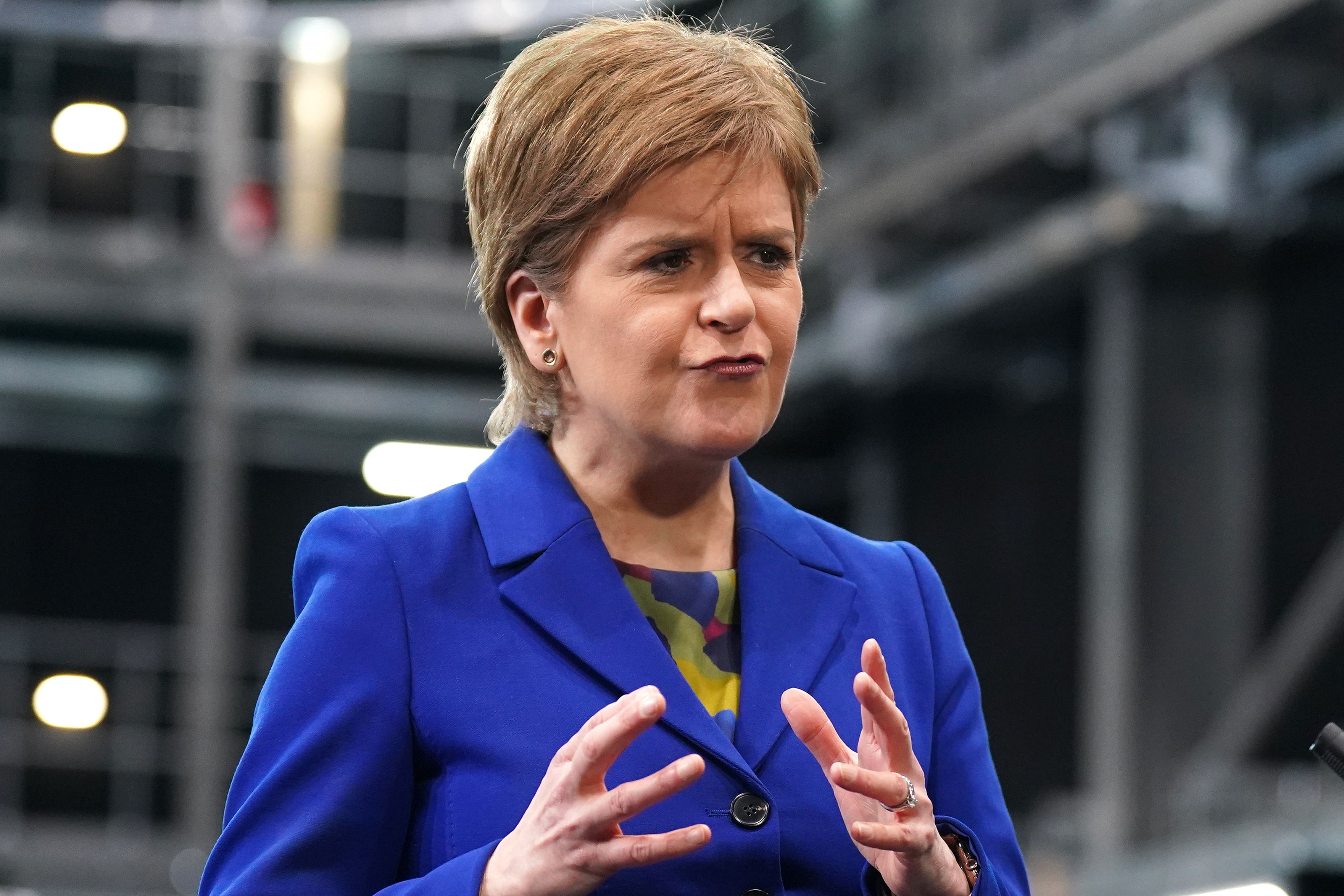Sturgeon: Critics of gender recognition law should not have to quit SNP
The First Minister said disagreements over the issue are ‘internal party democracy’

Your support helps us to tell the story
From reproductive rights to climate change to Big Tech, The Independent is on the ground when the story is developing. Whether it's investigating the financials of Elon Musk's pro-Trump PAC or producing our latest documentary, 'The A Word', which shines a light on the American women fighting for reproductive rights, we know how important it is to parse out the facts from the messaging.
At such a critical moment in US history, we need reporters on the ground. Your donation allows us to keep sending journalists to speak to both sides of the story.
The Independent is trusted by Americans across the entire political spectrum. And unlike many other quality news outlets, we choose not to lock Americans out of our reporting and analysis with paywalls. We believe quality journalism should be available to everyone, paid for by those who can afford it.
Your support makes all the difference.Critics of Holyrood’s gender recognition legislation within the SNP should not have to leave the party, Nicola Sturgeon has said.
Scotland’s First Minister said disagreements over the issue are “internal party democracy”.
Ms Sturgeon also confirmed she still intends to challenge the UK Government’s use of Section 35 to block the Gender Recognition Reform Bill from becoming law.
At the weekend, Scotland’s Education Secretary Shirley-Anne Somerville said rebels should “question” if they want to stay in the party at the next election.
Ms Sturgeon spoke to journalists at a press conference in Edinburgh on Monday.
Asked if people should be standing down from the SNP if they disagreed with the Scottish Government’s stance, she said: “No I don’t.”
Ms Sturgeon said that for every party in the democratic world, there is a general expectation that politicians will stand on its platform.
She continued: “Equally – in probably every party that is a democracy in every democracy in the world – there are individuals who can’t accept the position on particular issues and vote accordingly.
“That is internal party democracy. It may be rare in the SNP, it is rare in the SNP but nevertheless I think we should see it in that way.”
The First Minister said her position on challenging Section 35 had not changed, saying it is important to have “clarity” on the circumstances in which it can be used.
Ms Sturgeon was also asked about the case of double rapist Isla Bryson and whether she thought Bryson was “at it” in changing gender.
In this case, the individual is a rapist, that's the important description for this individual
Ms Sturgeon said: “In this case, the individual is a rapist, that’s the important description for this individual.
“They have been convicted of rape and they’re in prison and in a male prison.
“So you deal with the individual – you don’t further stigmatise the entire group.”
Pressed further on Bryson’s case and whether she considered the prisoner to be a woman, Ms Sturgeon said: “Isla Bryson calls herself a woman, but what I’m trying to say is in the context of the prison service, that is not the relevant factor here.
“The relevant factor is the crime the individual has committed and been convicted of.”
The First Minister continued: “She regards herself a woman, I regard the individual as a rapist.”